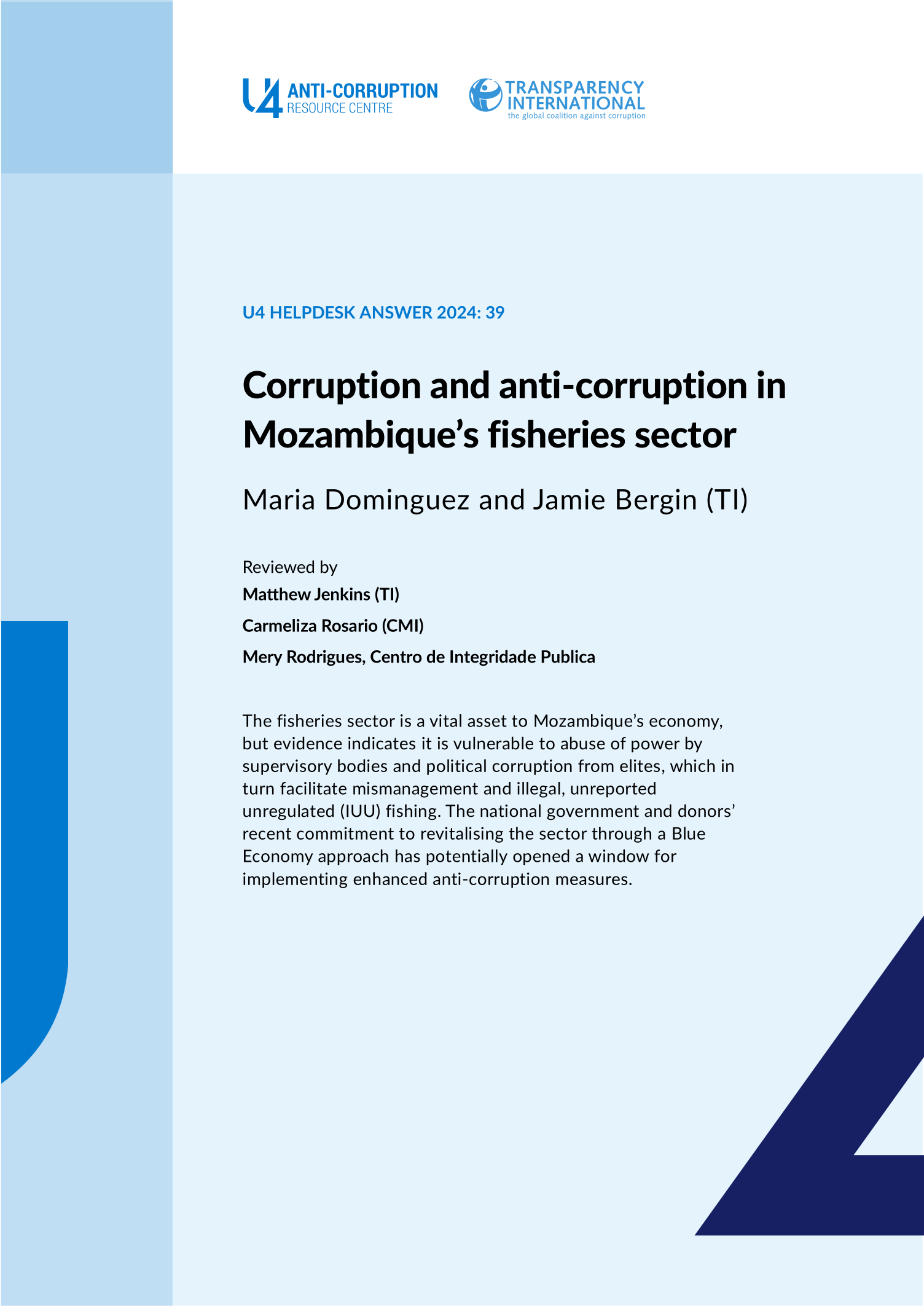Main points
- Mozambique’s fisheries sector and its growth potential have been undermined by illegal, unreported and unregulated (IUU) fishing and poor governance.
- Evidence suggests corruption contributes to both, with reports that supervisory authorities collude with vessel owners to enable IUU fishing, with the integrity of regulatory bodies being affected by political appointments and undue influence.
- The tuna bonds case had profound repercussions on the sector, as business executives and elite political actors exchanged over US$100 million in bribes and conspired to embezzle most of a US$2 billion loan issued ostensibly to develop fisheries and maritime security.
- Transparency gaps in the sector flagged by a 2024 assessment by the Environmental Justice Foundation mostly pertain to a failure to make public key data, such as the beneficial ownership and geographical positioning of vessels.
- Recommendations from the literature on enhancing the anti-corruption measures harmonise around more robust oversight and inspection procedures, the closure of transparency gaps, and strengthening anti-corruption measures in key institutions.



